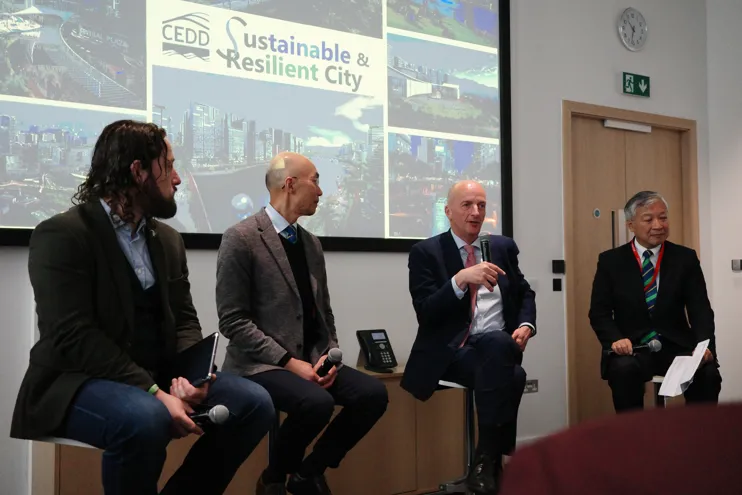Member Spotlight: Anuradha Udunuwara FIET

Anuradha Udunuwara has dedicated over two decades to shaping Sri Lanka’s telecoms landscape and contributing internationally to the future of networks. Currently a Senior Engineer in Enterprise Business Solutions at Sri Lanka Telecom (SLT), the country’s largest ICT solutions provider, his career has spanned everything from IP and optical transport to 5G, SD-WAN, and AI.
When asked about his professional passion, he explains “My main area of interest is ‘Telco Softwarisation’, understanding its challenges and developing practical solutions to help operators transition toward software-driven, cloud-native architectures.”
Anuradha became a Fellow of the IET in February 2022. “The journey was built on sustained contributions across leadership, innovation, and influence in both local and international engineering communities,” he adds. “Applying for Fellowship felt like the natural next step to formalise my professional journey and my alignment with the IET’s mission.”
That relationship with the IET began much earlier. “My IET journey started when I was an undergraduate at the Faculty of Engineering, University of Peradeniya, Sri Lanka, during the period from 1997 to 2001. I first became a student member of the then Institution of Electrical Engineers (IEE). Then, I became an MIET in 2003.”
The organisation has served as a real springboard for him. “The IET has given me both a platform and a voice. I’ve been able to present at IET Sri Lanka forums, engage with global experts, and connect with a professional network that spans disciplines and continents. It has also amplified my opportunities to influence the wider engineering community.”
For Anuradha, Fellowship is equally about responsibility as it is about recognition. “The best part of being an IET Fellow is the sense of responsibility that comes with it. The FIET recognition is not just a personal milestone, it is a reminder to share knowledge, mentor others, and contribute to the profession at large.”
His advice to young engineers is to the point: “Always stay curious, never stop learning, and don’t be afraid to share what you know. Engineering is not just about technology; it’s about uplifting people and societies.”
Indeed, his philosophy is one that extends far beyond telecoms: “I strongly believe that digital transformation is only possible through knowledge transformation. Empowering people is what truly drives sustainable change.”

The group then took part in a panel discussion titled ‘Challenges and Opportunities of Net Carbon Zero – East (HK) and West (UK) Experience Sharing’, brought together Dr Harrison and Prof Bannister with HKUEAA’s delegation leaders Michael Fong and Paul Poon. The discussion explored how both regions are navigating decarbonisation, infrastructure developments, and the need for regulatory reform. Both sides agreed that knowledge exchange, public communication, and collaborative leadership are key to overcoming barriers - whether in the context of high-density urban planning in Hong Kong, or supply chain issues and permitting constraints in the UK.
The visit also spotlighted the pressing global shortage of engineers and the importance of attracting diverse talent to the profession. The IET’s shift towards multidisciplinary policy centres and active engagement with government, regulators, and international partners was recognised as a strong model. Promoting professional development, such as IET fellowship, and strengthening engineering communities, were identified as priorities.
Delegates toured around our historic London headquarters and explored potential areas for future collaboration.
Mr Poon said: “The warm hospitality extended by the IET team including Dr Simon Harrison, Prof Bannister, Toni Allen, James Howe, Daniel Celino and other colleagues were greatly appreciated and contributed to the event’s success. As both regions are facing the ongoing challenges of rapid technological change and climate action, the discussions reinforced a shared understanding that achieving net zero will depend not only on engineering innovations, but also on investment in people, education, and community engagement.
“As HKUEAA celebrates its golden jubilee, this visit fostered valuable dialogue and laid the groundwork for continued knowledge exchange and future collaboration in the global transition to net zero with sustainable energy.”
